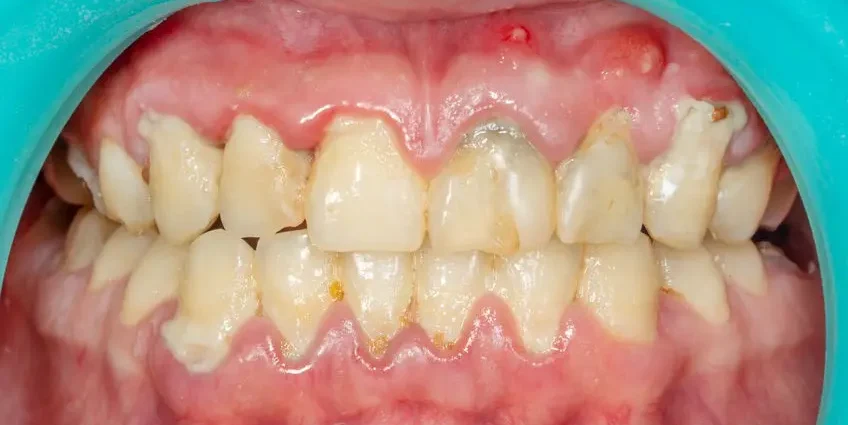The bacteria responsible for periodontitis may contribute to the development of colorectal cancer, indicate the work of two independent teams of researchers from the USA. In Cell Host & Microbe, they explain how this can happen.
As the researchers reminded, previous studies have already suggested that bacteria may be involved in the development of colorectal cancer. In experiments on rodents, it was observed that such a role can be played by, for example, one of the strains of Escherichia coli and bacteria of the species Bacteroides fragilis.
In 2011, in the pages of the Genome Research magazine, two research teams reported finding genetic material of anaerobic bacteria of the genus Fusobacterium (it is they that cause periodontitis) in samples collected from colorectal cancers from patients. However, it was not clear whether these microbes actually contributed to the development of this cancer and how they could do so.
In their latest experiments, researchers from the Dana-Farber Cancer Institute in Boston (Massachusetts, USA) observed that bacteria of the species Fusobacterium nucleatum often occur in benign neoplastic lesions, the so-called adenomas (polyps) that can develop into colon cancer over time.
This suggests that these microorganisms may be involved in the early stages of development of malignant colon tumors, the researchers say.
In mice that were a model to study this tumor, F. nucleatum accelerated the formation of tumors by attracting immune cells from the so-called myeloid lineage, such as granulocytes, neutrophils, eosinophils. Research indicates that these cells may contribute to the growth of tumors by stimulating inflammatory processes and promoting the development of blood vessels that nourish tumors.
According to co-author Wendy Garrett of the Dana-Farber Cancer Institute, this discovery could open up new directions in research into inhibiting the growth and development of colorectal cancer.
A second team of scientists led by Yiping Han of Case Western Reserve University School of Dental Medicine in Cleveland (Ohio, USA) showed that F. nucleatum use their surface adhesin molecule, abbreviated as FadA, to attach move into the cancer cells in the colon and infect them. This increased the division of cancer cells.
It also turned out that FadA activates genes that stimulate neoplastic processes and are involved in the development of inflammation.
Moreover, in mice, the adhesin FadA stimulated the growth of tumors in the large intestine. In cells collected from adenomas and from colorectal carcinomas from patients, greater activity of the gene encoding FadA was found than in cells obtained from the intestines of healthy people. The activity of this gene was also increased in healthy cells in the intestines of people with polyps or colorectal cancer.
Hen’s team was also able to identify a molecule capable of blocking the effects of FadA on cancer cells.
We have shown that FadA levels are an indicator that can be used for the early diagnosis of colorectal cancer, Han comments. In her opinion, compounds blocking this adhesin could be used in the prevention or treatment of colon cancer.
The authors of both studies estimate that these findings could contribute to the development of more effective methods of diagnosis, prevention and treatment of colorectal cancer.
F. nucleatum are bacteria found in the mouth. They cause periodontitis, which is an inflammatory disease of the gums and other periodontal tissues. They also cause many infections outside the mouth, such as intrauterine infections, which cause serious complications in pregnancy such as premature birth, stillbirth and neonatal sepsis. (PAP)
jjj / agt /










